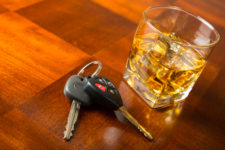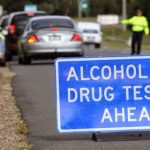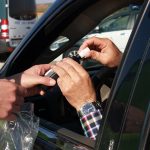New Drink Driving and Drug Driving Laws in NSW

On 25th September 2018, the New South Wales parliament passed the Road Transport Legislation Amendment (Penalties and Other Sanctions) Bill which comes into effect across the state on Monday, 20 May 2019.
The legislation amends the Road Transport Act 2013 in respect of the rules relating to drug driving and novice, special and low-range drink driving.
The main change is that police will be empowered at first instance to determine whether a driver is fined and suspended for any of these offences.
Currently, police are required to issue a court attendance notice to a person they suspect of committing these offences, and a local court magistrate will then determine the guilt or innocence of the defendant, or in the case of a guilty plea or a finding of guilt, decides the appropriate penalty.
But from Monday, police will have the power to issue a penalty notice which, at the time of writing, is in the sum of $682, plus a 3 month driver licence suspension for the offences.
Applicable drink driving offences
The new rules will apply to those without a previous major traffic offence within the previous 5 years who:
- Drive with a novice range prescribed concentration of alcohol (PCA), being learner or provisional licence holders with a blood alcohol concentration (BAC) of between 0.001 and 0.019,
- Drive with a special range PCA, being special category licence holders with a BAC of 0.020 to 0.049, and
- Drive with a low-range PCA, being full licence holders with a BAC of 0.050 to 0.079.
The licence suspension is immediate.
Drug driving
The same $682 fine and 3 month licence suspension apply to those without a previous major traffic offence within the past 5 year, who drive with an illicit substance in their bloodstream.
In those cases, the suspension is effective once the driver is notified of a positive laboratory analysis, which occurs some time after the driver is initially tested and their sample is sent off for proper testing.
The penalty notice counts as a ‘first offence’
Where a person pleads guilty to drink or drug driving in a court of law and the magistrate exercises his or her discretion to deal with them without a criminal conviction – in other words, by way of a section 10(1)(a) dismissal or a conditional release order without a conviction (CRO) – the offence is not counted as first offence.
This is important because the penalties for drink and drug driving offences increase significantly in the event that a person is convicted of a second or subsequent major traffic offence within 5 years.
But troublingly, a penalty notice under the new regime does count as a first offence, which means that increased penalties will apply to the commission of a major traffic offence within the next 5 years.
This can be a major reason for a person caught within the new regime to consider appealing the penalty notice and, in the event he or she wishes to plead guilty, seeking to persuade the magistrate to deal with them without a criminal conviction.
Can I appeal?
An appeal against the fine and licence suspension can be filed in a local court.
However, a driver will remain suspended until the case comes before the court – which can take two-weeks or more.
That said, the fact the driver has been off-the-road for a period of time can bolster sentencing submissions for a non-conviction order.
Increased court penalties
When considering whether to appeal against the whole penalty, it should be borne in mind that if the court is not persuaded to grant a section 10(1)(a) dismissal or CRO without a conviction, the maximum applicable fines greatly exceed the penalty notice amount.
In fact under the new regime, the maximum fine for the applicable offences has been increased from $1,100 to $2,200.
It should also be borne in mind that, in the event of a conviction, the court is at liberty to impose a licence disqualification of up to 6 months, that it can only reduce it to a minimum of 3 months, and that the conviction will be recorded on a person’s criminal record.
A penalty notice is not considered to be a criminal conviction.
Can I appeal the driver licence suspension only?
That said, it is important to be aware that there are provisions in the Road Transport Act 2013 which allow drivers to appeal their licence suspensions only.
In relation to low range drink driving, the court may vary or set aside the police suspension if it is satisfied that there are “exceptional circumstances” to do so.
In making that determination, the court is not permitted take into account the circumstances of the offence itself, but can consider other matters including the driving record, the need for a driver licence and indications of remorse and acceptance of responsibility, which may be contained in character references and any letter of apology.
However, the driver will remain suspended until the hearing of the appeal.
In relation to drug driving, an appeal can be lodged against the RMS suspension if the driver has paid the whole or any part of the fine.
In that event, the length of any suspension cannot exceed three months.
Significantly, an unsuccessful licence appeal will not result in a criminal record.
Going to court for a traffic offence?
If you are going to court for a traffic offence, call or email Sydney Criminal Lawyers anytime to arrange a free first consultation with an experienced, specialist traffic lawyer who will accurately advise you of your options, the best way forward, and fight for the optimal outcome in your specific situation.






